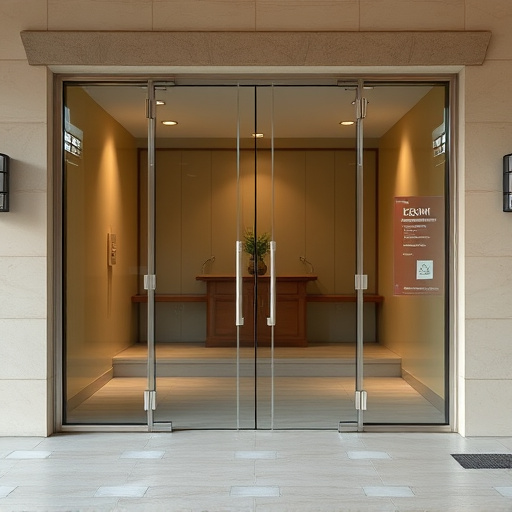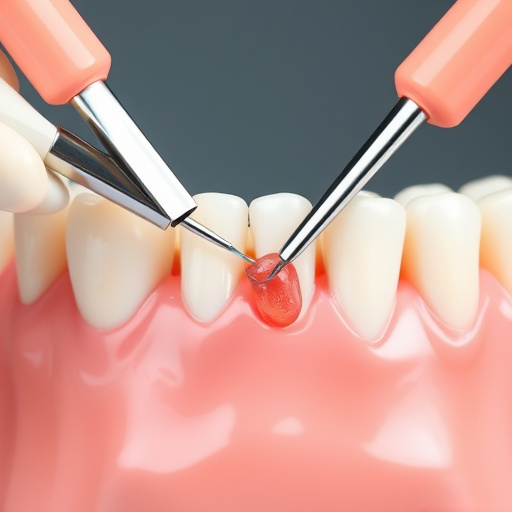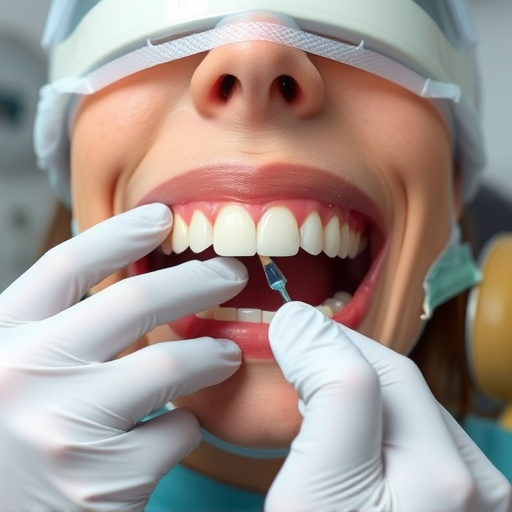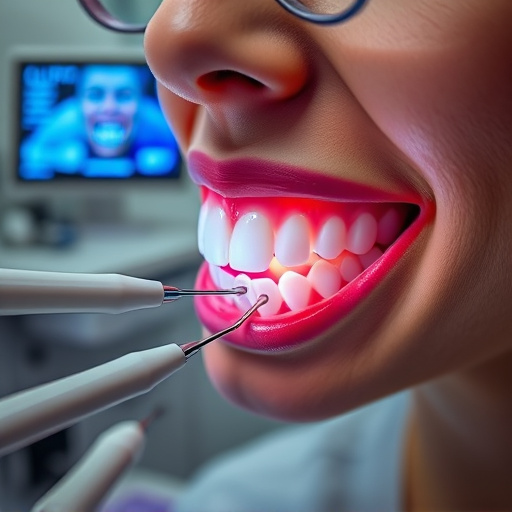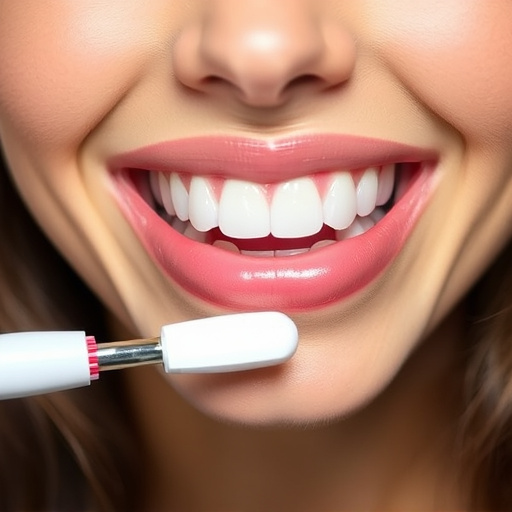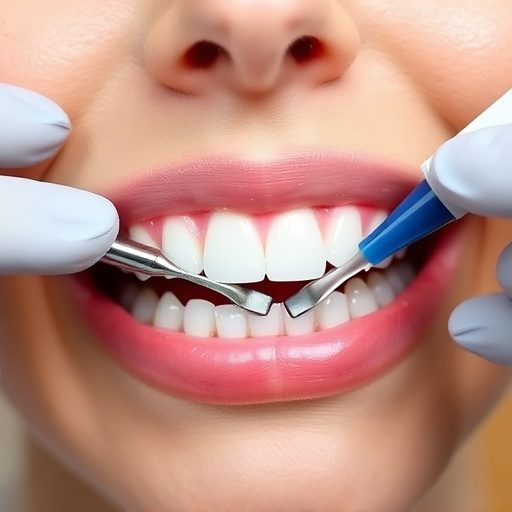Handicap accessible dental care ensures individuals with diverse physical and medical challenges can access essential oral health services through tailored options from preventive dentistry to specialized procedures. These offices are designed with features like wheelchair ramps and lowered countertops, and staff are trained in disability awareness, fostering inclusivity and encouraging regular dental care for better overall health. This specialized field adapts treatments for limited mobility, cognitive impairments, and extensive restorative needs using advanced techniques and customized solutions.
In today’s inclusive society, ensuring everyone has access to quality dental care is paramount. This is especially true for individuals with complex medical needs who often require specialized handicap accessible dental options. Understanding and creating an inclusive dental environment can significantly improve oral health outcomes for these patients. From adapting practices to providing specialized treatments, this article explores key strategies to ensure all patients, regardless of ability, receive the comprehensive care they deserve.
- Understanding Handicap Accessible Dental Care
- Creating an Inclusive Dental Environment
- Specialized Treatments for Complex Patients
Understanding Handicap Accessible Dental Care

Handicap accessible dental care is designed to ensure that individuals with diverse physical and medical challenges can access essential oral health services. This includes a range of options tailored to meet complex needs, from preventive dentistry to routine check-ups, and even specialized procedures like tooth extractions and dental crowns. Understanding these accessible dental services is crucial for both patients and healthcare providers.
For many people with disabilities, navigating dental care can be a challenging and often daunting task. Handicap accessible dental facilities are equipped to accommodate various needs, ensuring comfort and safety during visits. This involves modifying equipment, providing specialized tools, and training staff to deliver care that caters to unique requirements. By embracing these adaptations, dental practices contribute to promoting preventive dentistry and maintaining overall oral health for their disabled patients.
Creating an Inclusive Dental Environment
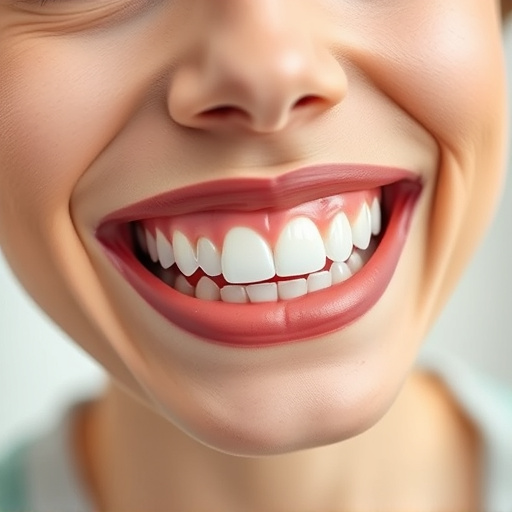
Creating an inclusive dental environment is paramount when providing care for patients with complex medical needs. Handicap accessible dental offices are designed to accommodate various disabilities, ensuring every patient feels welcome and comfortable. Features like wheelchair ramps, wider doors, and lowered countertops facilitate easy access for those using mobility aids. This accessibility extends beyond physical adaptations; it also involves staff training in disability awareness and sensitivity.
Dental professionals can further enhance inclusivity by offering specialized services tailored to specific needs. For instance, providing a quiet or private room for patients prone to anxiety can make routine procedures like teeth cleaning or wisdom tooth removal less daunting. A family dentistry approach that caters to diverse families, including those with special requirements, fosters a sense of belonging and promotes regular dental care, contributing to better overall health.
Specialized Treatments for Complex Patients
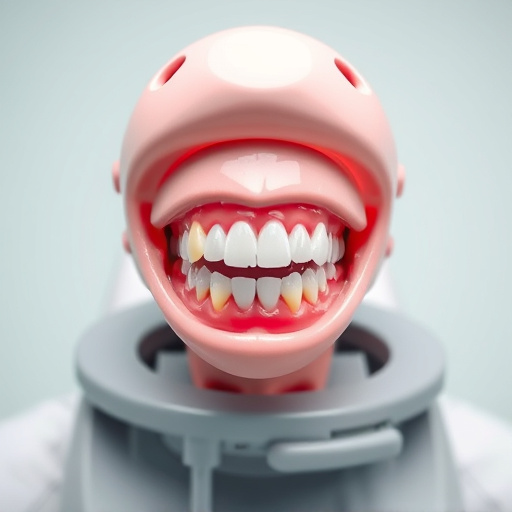
Dental care for individuals with complex medical needs and disabilities is a specialized field that requires tailored solutions. Handicap accessible dental services are designed to cater to patients who might face challenges in traditional dental settings due to their unique circumstances. These treatments go beyond routine check-ups, focusing on addressing specific issues such as limited mobility, cognitive disabilities, or the need for extensive restorative procedures.
For example, a patient with advanced periodontitis and reduced dexterity could require adapted tools and techniques during treatment. Similarly, those undergoing complex medical treatments might need dental interventions that support their overall health goals. Restorative dentistry plays a significant role here, offering solutions like customized dental crowns to restore function and aesthetics. The integration of cosmetic dentistry principles can also enhance the patient’s confidence, addressing both practical and aesthetic concerns simultaneously.
Handicap accessible dental care is not just a convenience—it’s a critical component of ensuring equal access to oral health services for all. By understanding the unique needs of patients with complex medical conditions, creating inclusive environments, and providing specialized treatments, dentists can significantly improve the lives of these individuals. This holistic approach to handicap accessible dental options ensures that everyone, regardless of their abilities or challenges, can receive the quality care they deserve.






